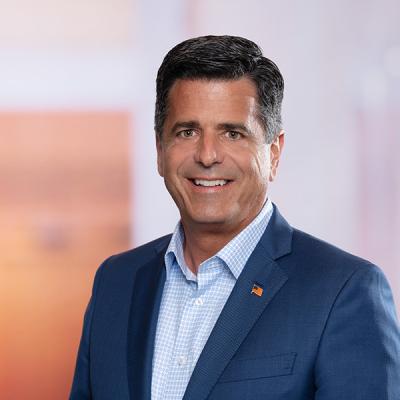Massachusetts Reconsiders Nuclear Energy in Its Clean Power Mix
Updated November 13, 2025
On November 11, the House members of the Joint Committee on Telecommunications, Utilities and Energy voted to advance a new draft of a bill entitled An Act Relative to Energy Affordability, Clean Power, and Economic Competitiveness. This new bill is a 105-section, omnibus bill that could impact all forms of energy resources in Massachusetts. Interestingly, one section of the bill supports the view that policymakers in the state will turn to nuclear energy as a potential solution to the state’s energy problems. Specifically, the bill repeals a Massachusetts law that heretofore was seen as a barrier to building new nuclear power plants or low‐level radioactive waste storage and disposal facilities in Massachusetts. This law, passed by referendum in 1982, requires (i) a statewide vote to allow for a new nuclear facility and/or storage and disposal facilities, and (ii) the legislature to certify findings that include things like whether the site, technology, safety and waste disposal options are adequate. The proposal in the new House bill to repeal this law will arguably make it easier to site new nuclear power plants or related storage and disposal facilities. It is unclear when the Massachusetts House of Representatives will vote on this bill, and it is likely to undergo review and further revisions when and if the bill is referred to the House Committee on Ways and Means. However, the fact that this bill is gaining traction is a clear signal that the legislature is focused on making energy more affordable in Massachusetts.
Massachusetts has long been recognized as a leader in innovation, from biotechnology to green steel, and continues to explore a wide range of solutions to meet its clean-energy and climate goals. As the Commonwealth works toward achieving net-zero emissions by 2050, policymakers, researchers, and industry leaders are increasingly revisiting the potential role of nuclear energy within a diversified energy portfolio.
A Changing Energy Landscape
Massachusetts’ energy demand is projected to grow substantially in the coming decades, driven by the electrification of transportation, expansion of data centers, and continued housing and economic growth. While renewable sources such as wind and solar remain central to the Commonwealth’s clean-energy strategy, conversations are underway about how to complement these sources with additional options that can provide consistent and reliable power. Governor Maura Healey and her administration have acknowledged that nuclear power, including new technologies now under development, could play a role in meeting future energy needs. These conversations are part of a broader statewide effort to balance reliability, affordability, and sustainability in energy planning. With stop work orders for wind farm construction coming from Washington and tax credits ceasing to exist for solar in the near term, the opportunity to pivot to other technologies is upon us.
Emerging Nuclear Technologies
Today’s nuclear technology looks very different from the large-scale plants of previous generations. Advances such as small modular reactors (SMRs) and microreactors are designed to be more compact, flexible, and inherently safe, with built-in systems that automatically shut down in emergencies. These designs could complement renewable resources by providing steady, carbon-free power when wind and solar output is low. Several states across the country are already studying or piloting these next-generation systems, and Massachusetts’ research institutions and clean-tech sector position it well to participate in such innovation efforts.
At the federal level, there is strong bipartisan momentum behind nuclear energy, with new funding, permitting reform, and workforce initiatives designed to accelerate deployment. For Massachusetts, this presents a major opportunity to lead. With its world-class universities, innovative ecosystem, and skilled workforce, the Commonwealth is well positioned to attract next-generation nuclear investment provided it streamlines permitting and fosters a supportive policy environment. Massachusetts has the talent and technology to turn its research strength into real economic growth and clean-energy leadership.
Reusing Existing Energy Infrastructure
As Massachusetts and other states evaluate potential sites for next-generation nuclear projects, one area of interest is the possibility of repurposing existing energy infrastructure. Former coal or oil-fired power plant sites, many of which already have established grid connections, cooling systems, and transportation access, can offer significant advantages for siting advanced nuclear facilities. By building on existing transmission lines, water intake structures, and industrial land, developers can reduce permitting challenges, lower costs, and minimize environmental disturbance compared to developing entirely new sites.
SMRs may be particularly well suited for this kind of redevelopment. Their compact design and scalable output allow them to fit within the footprint of many retired fossil fuel plants while providing a steady, carbon-free source of baseload electricity. Across the United States, several utilities and research institutions are already studying how to adapt legacy sites for advanced nuclear use. For Massachusetts, such approaches could offer a practical path to expanding clean energy capacity without the need for extensive new transmission corridors or greenfield construction.
Policy and Collaboration
Realizing any potential role for nuclear energy would require collaboration among policymakers, regulators, utilities, and the private sector. Discussions have included the modernization of existing energy laws, alignment with new federal permitting processes, and engagement with quasigovernmental organizations and agencies, like the Massachusetts Clean Energy Center, to attract investment and foster public understanding.
Legislatively, the Commonwealth is currently considering a series of bills that explore the potential integration of nuclear power into the state’s broader energy portfolio. These efforts align with Governor Healey’s recent announcement about teaming up with the University of Massachusetts Lowell to develop “Advanced Nuclear and Fusion Energy Roadmaps” to accelerate the state’s leadership in advanced nuclear and fusion energy technologies.
While these conversations and efforts are still at an early stage, any future direction will require careful study, public input, innovation, and close collaboration with federal and state partners.
Looking Ahead
Massachusetts has long been a national leader in clean energy innovation and policy. As the Commonwealth explores every available technology to meet its ambitious climate and economic goals, nuclear energy, including emerging small and modular reactor systems, is reentering the conversation as a potential solution.
At ML Strategies, we are closely tracking these developments and supporting clients engaged in energy, technology, and infrastructure initiatives across Massachusetts and beyond. The renewed focus on nuclear energy is just one of many pathways under consideration as the state works to build a reliable, affordable, and sustainable energy future.
ML Strategies is the consulting affiliate of Mintz, offering strategic advisory services in government relations, public affairs, and business development. Together, Mintz and ML Strategies provide clients with integrated legal and policy expertise to navigate complex regulatory landscapes and advance energy, infrastructure, and innovation initiatives.
If you would like to learn more or discuss how these developments may impact your organization, please don’t hesitate to contact us at SABaddour@mlstrategies.com.
Content Publishers
Steven A. Baddour
Executive Vice President & Director of Operations

Thomas R. Burton, III
Daniel J. Connelly
Senior Vice President and Compliance Officer





